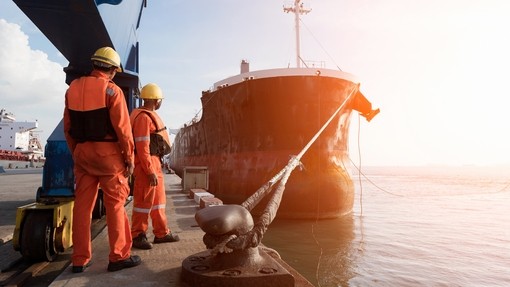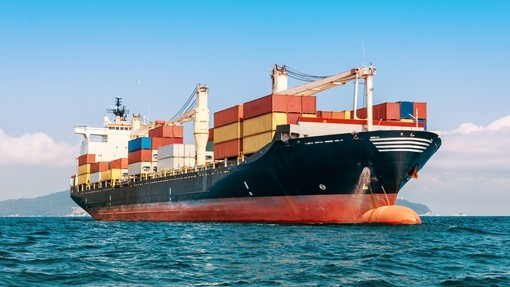Apportionment of liability under the Inter Club Agreement: secure to be secured? It depends

Details
London arbitration 18/18
The above recent arbitration decision calls for caution on the wording of clauses which owners and charterers include in their charterparties when they aim to incorporate the provisions of the Inter Club Agreement (ICA).
The tribunal found that a commonly used clause in charterparties which provided that liability in respect of cargo claims was to be apportioned as specified by the ICA was not sufficient to also incorporate the provisions of the ICA relating to the provision of security and counter-security. Permission to appeal was refused by the High Court.
Facts
The relevant facts were quite straightforward. Head owners chartered their vessel to the claimant disponent owners who, in turn, chartered to the respondent charterers. Both charterparties included the following wording:
‘Liability for cargo claims, as between charterers and owners, shall be apportioned/settled as specified by the InterClub New York Produce Exchange Agreement effective from 1996 and its subsequent amendments’.
The head owners’ P&I insurers put up security in respect of a cargo claim brought against head owners in the amount of US$900,000. In turn, the disponent owners provided counter security to the head owners on the basis of Clause 9 of the 2011 ICA which provides a reciprocal obligation for provision of security by a party to a charterparty once security in respect of a cargo claim is provided by its counter-party.
When the disponent owners sought counter-security from their own charterers, this was denied on the basis that the charterparty clause was not apt to also incorporate the provisions of the ICA relating to the provision of security.
The disponent owners commenced arbitration proceedings against the charterers and made an application under Section 48(5)(b) of the Arbitration Act 1996 asking the tribunal to order the charterers to put up security pursuant to the relevant section of the ICA.
Relevant issues
The charterers argued that the ‘full’ ICA was not incorporated in the charterparty. Instead, only the provisions relating to the apportionment of liability were effectively incorporated. They relied on the strict / literal interpretation of the clause which only referred to ‘apportionment’ and ‘settlement’ of liability and did not deal with security.
On the other hand, the disponent owners argued that the relevant clause made it clear that the full terms of the ICA applied in respect of liability for cargo claims and therefore the entire relevant provisions were incorporated (including those relating to provision of security).
Decision
The tribunal found in the charterers’ favour. In doing so, it preferred the strict / literal interpretation which only referred to ‘apportionment and settlement’ of liability. The tribunal also referred to a passage from the Time Charters which stated that the ICA ‘was neither designed nor drafted to be incorporated into charters’. The arbitrators arrived to the conclusion that specific words of incorporation would be required to incorporate the entire ICA in the charterparty and that in the absence of such words, certain provisions of the ICA would not be applicable.
Commentary
This is a significant decision (perhaps more so because leave to appeal was refused) which may have considerable consequences. This is because the relevant wording is commonly used in fixtures and some parties (including their liability insurers) may be caught by surprise if they realise that there is a risk that some provisions of the ICA are not applicable.
Whilst the tribunal made it clear that this would not affect the charterers’ liability as regards the ‘apportionment’ and ‘settlement’ of cargo claims, it may remain unclear as to whether the failure of incorporation would also extend to other provisions of the ICA and if so to which.
For instance, it is not clear whether the provisions relating to the relevant notices which the parties are required to give within certain periods would survive (as they might be argued as not strictly dealing with either the ‘apportionment’ of liability or ‘settling’ of the claim). In the absence of such a notice, one of the parties may avoid liability, but this is not strictly related to either ‘apportionment’ or ‘settlement’. This may therefore lead to some uncertainty which will however be limited to clauses of the same or similar wording.
Consequently, it would be recommended that the owners and their P&I insurers revisit relevant clauses which are aimed to incorporate the entire provisions of the ICA and re-draft / amend the wording by clarifying whether the parties intend to incorporate all the provisions of the ICA or merely those relating to apportionment of liability.
If the latter, it would be recommended that explicit reference to the relevant provisions is made for the avoidance of confusion and caution is also paid as to the interaction of those provisions with other provisions of the charterparty relating to liability.
Finally, we would also note that the fact that security was not ultimately ordered by the tribunal would not necessarily preclude the disponent owners from seeking to obtain security on an involuntary basis which would, however, depend on the availability of charterers’ assets in appropriate jurisdictions.
The above article is for information purposes only and is not intended as a substitute for legal advice. If you have further queries or require assistance in relation to the issues above, please do not hesitate to contact us.






